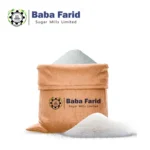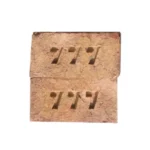If you are new to the Pakistani real estate market, you may be wondering how to sell property there. As has long been the criticism of many property affiliates in the country, the task can appear challenging.
The good news is that you no longer have to be concerned about this issue. This blog, which will likely have you returning for periodic reviews, provides comprehensive information on the property transfer procedure in Pakistan.
Before we examine the specifics of transferring and selling property in Pakistan, please review our real estate dictionary to familiarize yourself with words such as “fard” and “bayana.”
Now, let’s begin by defining precisely what a property transfer entails, as understood in the country.
How to transfer ownership of property in Pakistan
Once the property has been acquired, it must be transferred into the buyer’s name.
A person legally owns a property if they possess the property’s “title.” A property transfer in Pakistan consists mostly of the transfer of the title to a landholding from one person to another.
This transfer can occur in a variety of ways and is not limited to a sale. It may also contain mortgage, gift deed, lease, and exchange difficulties. Additionally, several types of characteristics may be engaged in the process.
Real estate is primarily concerned with immovable properties. Although “plot files” as they function within the system might be regarded as a form of movable property.
What are movable goods?
Legally speaking, an immovable property is a sort of property that cannot be moved without changing its nature. It is anchored to the ground. This category may contain land, houses, apartments, stores, and all other forms of constructed buildings or structures. Homes, land, and flats are all considered immovable properties.
Who is eligible to transfer property in Pakistan?
In Pakistan, a person must be at least 18 years old in order to transfer property. Legally, only such a person who can sign a contract may transfer property ownership in Pakistan. According to the Contract Act of 1872, a contract is “an enforceable agreement between two parties.”
The following cannot be contract parties:
- A Minor. Currently in Pakistan, this is everyone under the age of 18.
- A person who cannot comprehend the repercussions of his actions. This may be the result of a permanent or transient mental impairment, or other comparable causes.
- A person who is prohibited by law from signing a contract.
- In Pakistan, one can only transfer property if they are at least 18 years old, of sound mind, and not prohibited by law from entering into contracts.
- Contract requirements include maturity and clarity.
Transferring and selling property procedures in Pakistan
The token is followed by a bayana if the sale is successful. Typically, this is the initial stage in the process of transferring or selling property in Pakistan. A potential purchaser pays a ‘token’ amount to a seller to express their intent to buy. Detailed conversation, negotiation, and a series of practical actions for purchasing a property follow.
Consequently, the seller ceases temporarily negotiating the sale of the same property with other prospective bidders. If the sale does not go through, the token is returned with any applicable deductions.
Typically, the token is followed by a bayana. This object has the same function as the token. However, unlike the latter, it is typically accompanied by a written agreement, making things slightly more official.
Below are the specifics of the Pakistani property selling agreement form. It is related to the bayana and consists of:
- Complete information about the property
- The terms of the property’s selling.
- The sum total of money (in consideration of which the seller agrees to transfer)
- The date by which the buyer must pay the balance due (after bayana and token)
- Required documents for transferring or selling property in Pakistan
The required documentation may vary based on the property’s location. Before you may transfer and sell property in Pakistan, you will need to organize your documentation.
Here is a list of the paperwork required for the sale and transfer of property in Pakistan:
- Recent images of the two concerned parties (buyer and seller)
- Copies of their Social Security Cards (NIC)
- The seller’s original title deed. The title deed is the paperwork that verifies the seller’s ownership.
- The ‘Deed of Sale’. This is the agreement (contract) signed by the buyer and the seller, and it is often regarded as Pakistan’s most essential property document.
- Depending on the location of the property, the transfer procedure may also require the following documents:
- The Fard-e-Malkiat (Record of Rights), sometimes referred to as the “fard.” This form can be obtained at the property registration office by the seller. It is an assurance (from such authority) that the seller is the legal owner of the property.
- A Certificate With No Demand (NDC). This document demonstrates that no dues are owed on the property. Depending on the location of the property, you can obtain it from your local development authority.
- To transfer ownership of a property located within a private housing society, you will typically require a letter from the society. This essentially serves as a substitute for a fard document. You require it prior to executing the sale deed.
Generally, societies simplify the transfer process for both sellers and buyers. Typically, they have a comprehensive structure in place to accomplish this.
If you wish to invest in DHA, Islamabad, for instance, here is the whole transfer procedure for houses in the renowned housing scheme. Similarly, if you are interested in purchasing a property in Bahria Town Islamabad, Bahria Town Karachi, or Bahria Town Lahore, among others, you can review the property transfer method.
The purchase of stamp paper and the payment of property taxes in Pakistan.
Additionally, the buyer must pay property taxes after the purchase.
Finally, a stamp paper is required to form the sales deed: the sales contract. The value of the needed stamp paper will vary based on the value of the property involved. To complete this stage, you (the buyer) must also pay any applicable taxes.
Note the following tax distribution:
- 3% Stamp Duty
- 2% Capital Value Tax 1% District Council Fee
- Fixed registration: typically, 500 Pakistani rupees
- Check out our entire guide on property taxes in Pakistan for additional information on the subject.
Property transfer deed in Pakistan
You can employ a lawyer or write the sales contract yourself.
In Pakistan, it is normally advised to hire a deed writer or an attorney to draft the sale deed. They have experience and are aware of what must be included in every deed. In general, this can help prevent future issues between the parties.
However, participation is voluntary. You can just as easily write the deed yourself. Property sale agreement templates are readily accessible online in Pakistan. You can discover them on the Registration of Deeds portal of the Punjab Land Record Authority.
Execution of sale deed
Lastly, you must bring the sales deed-inscribed stamp paper to the sub-office registrar’s along with the above-mentioned documents. In this instance, a magistrate/sub-registrar hears both parties involved in the exchange. Once the official is pleased with the proceedings, he or she approves the transaction and records the deed.
The recipient is now the legal owner of the property. The transfer is finalized upon registration of the sale deed with the sub-registrar.
Property dealer commission in Pakistan
There are no laws that govern the activities of real estate brokers and agents in the country. As a result, real estate agent commissions in Pakistan are widely diverse and mostly determined by local custom.
The standard commission rate for real estate agents is one percent of the property’s value from both the buyer and the seller. If the buyer and seller are represented by separate agents, each agent will keep the commission from their respective client.
Occasionally, agents’ fees may reach 2% of the property’s value. Or they may be satisfied with a considerably smaller (set) sum, regardless of the property’s value.
Identifying the best property
If you are interested in purchasing real estate in Pakistan, realize that your study could make all the difference. It can help you find the ideal property in the ideal location and with the necessary features. The listing page is an excellent starting point for this endeavor.
Examine the property listings for various regions, developments, or housing schemes and compare the listed prices. Read the descriptions and examine the provided photographs and videos. You can also contact the agents/owners that listed their properties by phone or email to explore your alternatives.


































